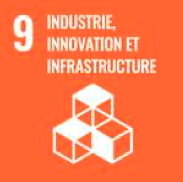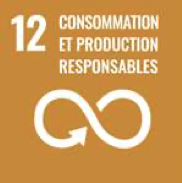Arts, creation and performance
Find out more about Arts, creation and performance research carried out at CNRS Humanities & Social Sciences and its laboratories.
The study of the arts and artistic performances at the CNRS functions with a diversified and multidisciplinary approach ranging from research into the aesthetic aspects of works, their mediation and use for the analysis of their material and immaterial dimensions. There is a particular focus on those involved in creative activities considered in their broadest dimension and also on the conditions, contexts and spaces of production, different forms of expression and modes of creation, individual and collective creative experiences, creative gestures, the symbolic dimension of works, and the different ways in which works are circulated and received.
From literature and musicology to the study of theatrical performance and, more broadly, the performing arts, from the history of Egyptian statuary to the studies of sound, visual and audiovisual forms, the variety of themes and approach methods characterises the dynamism of this research that is renewing itself to integrate new objects, fields and methods. This means that particular emphasis is given to creative media and techniques (graphic novels, photography, video games, digital arts, etc.) while previous and inherited hierarchies are also of course re-examined.
The types of research carried out can be highly diverse - aesthetic approaches; deciphering artistic productions and the ways they make sense; studies of artistic practices, circulation and cross-fertilisation; analysis of producers, mediators and audiences; study of the cultural and creative industries. The anthropological and historical, philosophical and aesthetic, literary and musical, economic and legal, social and political dimensions of the arts are at the core of several of our laboratories' work and these different dimensions feed into each other. Some laboratories organise their research around resolutely multidisciplinary cultural studies and some opt to take the shared sciences approach to working with artists.
It should also be stressed that the study of the arts at CNRS Humanities & Social Sciences has a considerable scope, both historically - it extends from prehistory to the most contemporary period - and geographically because CNRS units working in areal studies also study the arts. It also involves possible interdisciplinary research initiatives working with other CNRS Institutes like CNRS Chemistry, CNRS Informatics and CNRS Earth & Space.


Research centers and networks
CNRS Humanities & Social Sciences laboratories
- Ambiances Architectures Urbanités (AAU)
- Centre André Chastel-Laboratoire de recherche en histoire de l’art
- Centre d’Études Supérieures de Civilisation Médiévale (CESCM)
- Centre d’Études Supérieures de la Renaissance (CESR)
- Centre d’histoire sociale des mondes contemporains (CHS)
- Centre de recherche sur les arts et le langage (CRAL)
- Centre de recherche sur les liens sociaux (CERLIS)
- Centre de Recherches Sociologiques et Politiques de Paris (CRESPPA)
- Centre Georg Simmel. Recherches franco-allemandes en sciences sociales (Centre Georg Simmel)
- Centre Norbert Elias (CNE)
- France Amériques Espagne Sociétés Pouvoirs Acteurs (FRAMESPA)
- Héritages (Culture(s), Patrimoine(s), Création(s))
- Histoire, Archéologie, Littérature des mondes chrétiens et musulmans médiévaux (CIHAM)
- Institut d’histoire des représentations et des idées dans les modernités (IRHIM)
- Institut de recherche en musicologie (IReMus)
- Institut de recherche et d’histoire des textes (IRHT)
- Institut de Recherche sur la Renaissance, l’âge Classique et les Lumières (IRCL)
- Institut de Recherches Historiques du Septentrion (IRHiS)
- Institut international de l’innovation (I3)
- L’information visuelle et textuelle en histoire de l’art : nouveaux terrains, corpus, outils (In Visu)
- Laboratoire d’Anthropologie sociale (LAS)
- Laboratoire d’ethnologie et de sociologie comparative (LESC)
- Laboratoire de recherche historique Rhône-Alpes (LARHRA)
- Laboratoire de recherches sur les cultures anglophones (LARCA)
- Laboratoire Interdisciplinaire de Recherche « Sociétés, Sensibilités, Soin » (LIR3S)
- Laboratoire interdisciplinaire en études culturelles (LinCs)
- Litt&Arts
- Perception, Représentations, Image, Son, Musique (PRISM)
- Temps, espaces, langages, Europe méridionale, Méditerranée (TELEMMe)
- Théorie et histoire des arts et des littératures de la modernité (THALIM)
Voir également les laboratoires en études aréales.
Laboratories in other countries
- Centre d’études franco-russe (CEFR)
- Centre français de recherche de la péninsule arabique (CEFREPA)
- Centre d'études mexicaines et centraméricaines (CEMCA)
- Institut français d'Afrique du Sud (IFAS-recherche)
- Institut français du Proche-Orient (IFPO)
- Institut français de recherche en Afrique – Nairobi (IFRA-Nairobi)
- Maison française d'Oxford (MFO)
Houses of Human Sciences
Innovation and outreach
- CertiRedac - Litt&Arts
- CORAULIS - Ambiances Architectures Urbanités (AAU)
- Cosmethics - Laboratoire de recherche historique Rhône-Alpes (LARHRA)
- Esquis’Sons - Ambiances Architectures Urbanités (AAU)
- ICI AVANT. Voyage dans le temps - Institut de Recherches Historiques du Septentrion (IRHiS)
- IMAPI - Perception, Représentations, Image, Son, Musique (PRISM)
- PLEMO 3D - Centre André Chastel : Laboratoire de recherche en histoire de l'art
- VISUALL-tek - Institut de Recherches Historiques du Septentrion (IRHiS)
Networks
- FR Innovation, Connaissances et Société (INNOVACS)
- GDR Images, écritures transmédias et sciences sociales
- GDR Techniques et production dans l’histoire (TPH)
- Réseau RUSHS (Réseau des professionnels de l’image et du son)
- RTP Son : s Réseau thématique pluridisciplinaire du CNRS sur le son et l’écoute
CNRS Humanities & Social Sciences post-doctorate
CNRS Humanities & Social Sciences is funding a post-doctorate assigned to the Centre for Advanced Renaissance Studies (CESR) on the 'cultural and creative industries' in the framework of the leadership of the Priority Research Programme and Equipment (PEPR) on the national acceleration strategy for the cultural and creative industries (December 2022-November 2024).
Research Program
CNRS Humanities & Social Sciences is involved in the ICCARE Priority Research Programme and Equipment or PEPR with funding from the Investments for the Future programme PIA4. Solveig Serre and David Coeurjolly lead the programme for the CNRS.